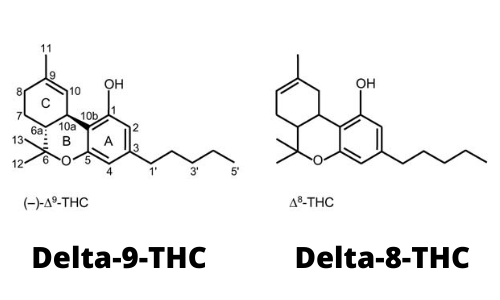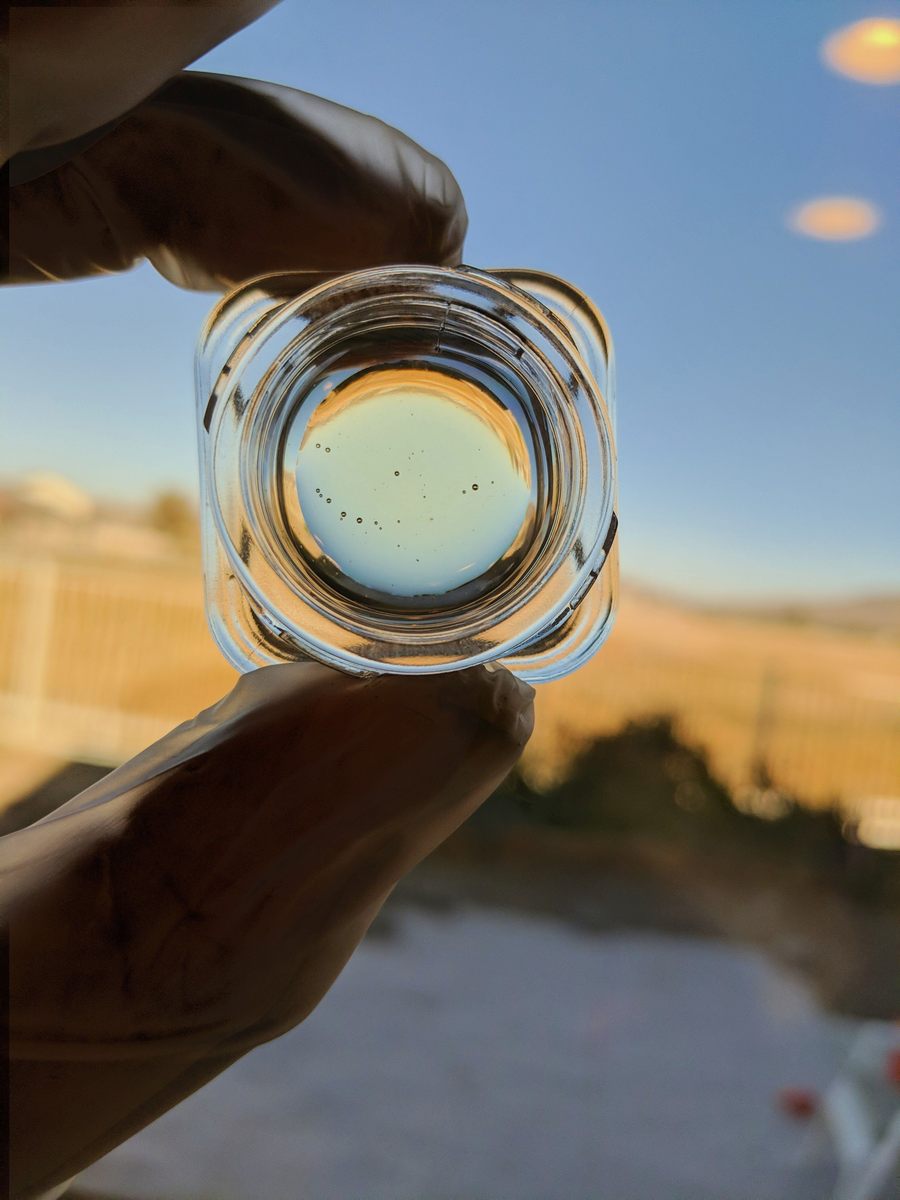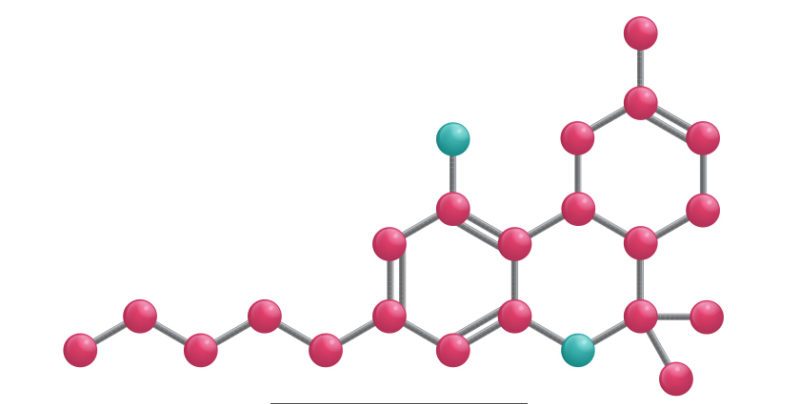Posted to Bloomberg.com | Jan. 24th 2021 | By: Tiffany Kary

Hemp, the staid sister of marijuana, is becoming much more interesting.
With its low THC content and lack of psychoactive effects, hemp has long been used for mostly practical purposes, like rope or fabric; or to produce CBD, a popular salve to relieve various ailments. But the marijuana industry is starting to take interest in a hemp-derived substance called delta-8 THC, which can be used to get high yet doesn’t have the same legal obstacles as stronger strains of cannabis. And after regulatory changes last week loosened restrictions on hemp, its ability to compete with marijuana is likely to grow.

Delta-8 THC exists at very low levels in cannabis, while its more-abundant molecular cousin, delta-9 THC, is the one that’s usually targeted in regulations. The U.S. Department of Agriculture updated its rules Jan. 19 to increase the amount of THC in hemp that would trigger a “negligent violation” finding to 1% from 0.5%. While hemp is defined as cannabis that contains less than 0.3% THC content — and plants above that level still must be disposed of — the relaxed rules give manufacturers more leeway when growing and processing plants.
That means hemp production in general just got easier. And that’s a good thing for the CBD business, as well as delta-8.
“Delta-8 is the new kid on the block that everyone wants to dance with,” cannabis industry consultant Susanna Short told me recently.
Because delta-8 is made from CBD, it isn’t clearly regulated like delta-9 THC, which has traditionally been cited as the source of cannabis’ psychoactive effects.
Since the 2018 Farm Bill, hemp and CBD can be transported and sold freely within the U.S., unlike high-THC marijuana, which can only be grown and sold in states where it’s legal. The rules around delta-8 aren’t yet entirely clear, amid confusion over whether the Drug Enforcement Agency’s rules on synthetic cannabinoids apply to the substance, which is synthetically produced.
“It’s derived from hemp, so we’re taking the position it’s legal,” said Dustin Robinson, a Florida attorney and founding partner of Mr. Cannabis Law. He sees delta-8 as a cheaper and more convenient buzz for many people. “I can get high by getting delta-8 from a smoke shop or a gas station.”
That could pose a threat to multistate operators who have built their businesses to comply with tight rules around high-THC marijuana, especially after states like Illinois and Colorado last summer began allowing the hemp industry to sell through marijuana dispensaries. But it could also present an opportunity, Robinson said.
“This could be a means for the marijuana supply chain to reduce their cost of cultivation, if they can use hemp biomass instead of marijuana biomass,” he said.

Delta-8 has more going for it than legal ambiguity. Trulieve Cannabis Corp., which sells products with delta-8, extols it as less likely to induce anxiety at high doses compared to delta-9, and cites studies that have linked it to appetite simulation, neuroprotective properties and anti-vomiting properties.
With potential like that, some companies aren’t waiting for regulatory clarity. Take Deep Six CBD, a retailer that just announced a rollout of delta-8 THC oil, vapes and edibles at a store in Pennsylvania. “Why pay $250 for a medical marijuana card?” the company’s president said in its news release touting the new product. “Try delta-8 THC first!”
 Hemp, the staid sister of marijuana, is becoming much more interesting.
With its low THC content and lack of psychoactive effects, hemp has long been used for mostly practical purposes, like rope or fabric; or to produce CBD, a popular salve to relieve various ailments. But the marijuana industry is starting to take interest in a hemp-derived substance called delta-8 THC, which can be used to get high yet doesn’t have the same legal obstacles as stronger strains of cannabis. And after regulatory changes last week loosened restrictions on hemp, its ability to compete with marijuana is likely to grow.
Hemp, the staid sister of marijuana, is becoming much more interesting.
With its low THC content and lack of psychoactive effects, hemp has long been used for mostly practical purposes, like rope or fabric; or to produce CBD, a popular salve to relieve various ailments. But the marijuana industry is starting to take interest in a hemp-derived substance called delta-8 THC, which can be used to get high yet doesn’t have the same legal obstacles as stronger strains of cannabis. And after regulatory changes last week loosened restrictions on hemp, its ability to compete with marijuana is likely to grow.
 Delta-8 THC exists at very low levels in cannabis, while its more-abundant molecular cousin, delta-9 THC, is the one that’s usually targeted in regulations. The U.S. Department of Agriculture updated its rules Jan. 19 to increase the amount of THC in hemp that would trigger a “negligent violation” finding to 1% from 0.5%. While hemp is defined as cannabis that contains less than 0.3% THC content — and plants above that level still must be disposed of — the relaxed rules give manufacturers more leeway when growing and processing plants.
That means hemp production in general just got easier. And that’s a good thing for the CBD business, as well as delta-8.
“Delta-8 is the new kid on the block that everyone wants to dance with,” cannabis industry consultant Susanna Short told me recently.
Because delta-8 is made from CBD, it isn’t clearly regulated like delta-9 THC, which has traditionally been cited as the source of cannabis’ psychoactive effects.
Since the 2018 Farm Bill, hemp and CBD can be transported and sold freely within the U.S., unlike high-THC marijuana, which can only be grown and sold in states where it’s legal. The rules around delta-8 aren’t yet entirely clear, amid confusion over whether the Drug Enforcement Agency’s rules on synthetic cannabinoids apply to the substance, which is synthetically produced.
“It’s derived from hemp, so we’re taking the position it’s legal,” said Dustin Robinson, a Florida attorney and founding partner of Mr. Cannabis Law. He sees delta-8 as a cheaper and more convenient buzz for many people. “I can get high by getting delta-8 from a smoke shop or a gas station.”
That could pose a threat to multistate operators who have built their businesses to comply with tight rules around high-THC marijuana, especially after states like Illinois and Colorado last summer began allowing the hemp industry to sell through marijuana dispensaries. But it could also present an opportunity, Robinson said.
“This could be a means for the marijuana supply chain to reduce their cost of cultivation, if they can use hemp biomass instead of marijuana biomass,” he said.
Delta-8 THC exists at very low levels in cannabis, while its more-abundant molecular cousin, delta-9 THC, is the one that’s usually targeted in regulations. The U.S. Department of Agriculture updated its rules Jan. 19 to increase the amount of THC in hemp that would trigger a “negligent violation” finding to 1% from 0.5%. While hemp is defined as cannabis that contains less than 0.3% THC content — and plants above that level still must be disposed of — the relaxed rules give manufacturers more leeway when growing and processing plants.
That means hemp production in general just got easier. And that’s a good thing for the CBD business, as well as delta-8.
“Delta-8 is the new kid on the block that everyone wants to dance with,” cannabis industry consultant Susanna Short told me recently.
Because delta-8 is made from CBD, it isn’t clearly regulated like delta-9 THC, which has traditionally been cited as the source of cannabis’ psychoactive effects.
Since the 2018 Farm Bill, hemp and CBD can be transported and sold freely within the U.S., unlike high-THC marijuana, which can only be grown and sold in states where it’s legal. The rules around delta-8 aren’t yet entirely clear, amid confusion over whether the Drug Enforcement Agency’s rules on synthetic cannabinoids apply to the substance, which is synthetically produced.
“It’s derived from hemp, so we’re taking the position it’s legal,” said Dustin Robinson, a Florida attorney and founding partner of Mr. Cannabis Law. He sees delta-8 as a cheaper and more convenient buzz for many people. “I can get high by getting delta-8 from a smoke shop or a gas station.”
That could pose a threat to multistate operators who have built their businesses to comply with tight rules around high-THC marijuana, especially after states like Illinois and Colorado last summer began allowing the hemp industry to sell through marijuana dispensaries. But it could also present an opportunity, Robinson said.
“This could be a means for the marijuana supply chain to reduce their cost of cultivation, if they can use hemp biomass instead of marijuana biomass,” he said.
 Delta-8 has more going for it than legal ambiguity. Trulieve Cannabis Corp., which sells products with delta-8, extols it as less likely to induce anxiety at high doses compared to delta-9, and cites studies that have linked it to appetite simulation, neuroprotective properties and anti-vomiting properties.
With potential like that, some companies aren’t waiting for regulatory clarity. Take Deep Six CBD, a retailer that just announced a rollout of delta-8 THC oil, vapes and edibles at a store in Pennsylvania. “Why pay $250 for a medical marijuana card?” the company’s president said in its news release touting the new product. “Try delta-8 THC first!”
Delta-8 has more going for it than legal ambiguity. Trulieve Cannabis Corp., which sells products with delta-8, extols it as less likely to induce anxiety at high doses compared to delta-9, and cites studies that have linked it to appetite simulation, neuroprotective properties and anti-vomiting properties.
With potential like that, some companies aren’t waiting for regulatory clarity. Take Deep Six CBD, a retailer that just announced a rollout of delta-8 THC oil, vapes and edibles at a store in Pennsylvania. “Why pay $250 for a medical marijuana card?” the company’s president said in its news release touting the new product. “Try delta-8 THC first!” 
I am perpetually thought about this, thankyou for putting up.
Always!
-Team Herbin’
As a Newbie, I am continuously browsing online for articles that can help me. Thank you
Very happy that you found us!
-Team Herbin’